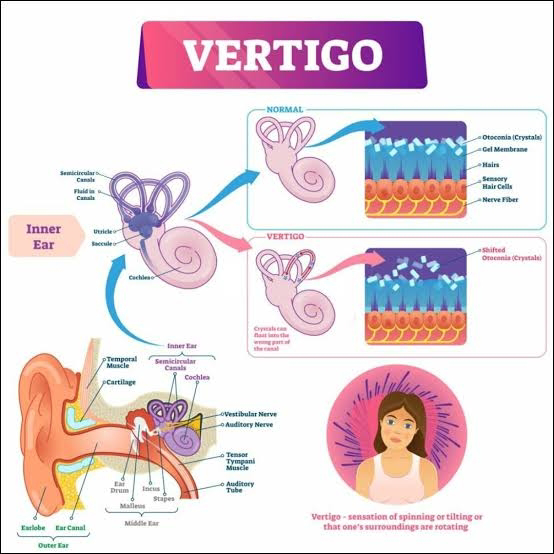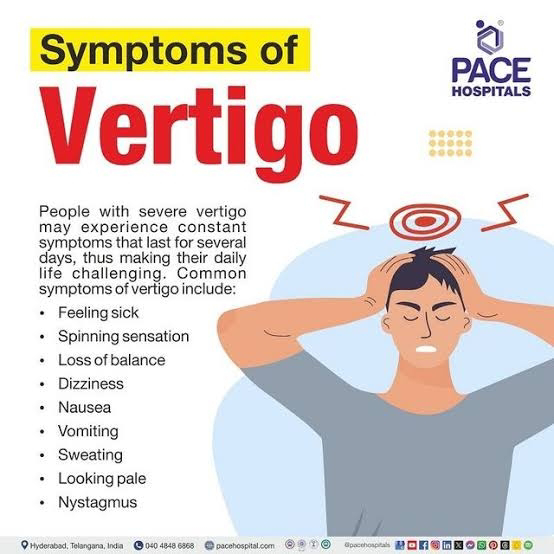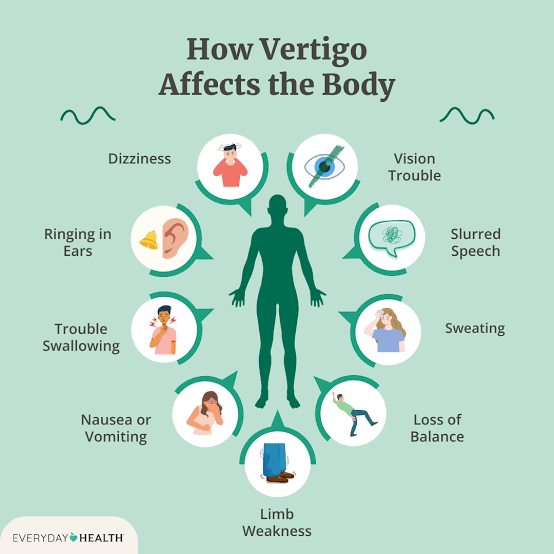Dizzy Days

Vertigo is a sensation of spinning or dizziness, often accompanied by a feeling of the world around you moving when, in reality, it isn’t. This disorienting condition can be temporary or chronic and can vary in severity. Vertigo isn’t a disease itself but rather a symptom of various underlying conditions. Understanding vertigo, its causes, symptoms, and treatment options can help manage and mitigate its effects.
What Is Vertigo?
Vertigo is a type of dizziness that gives you a false sense of movement. This sensation can be experienced in two ways:
– Subjective Vertigo: The feeling that you are moving.
– Objective Vertigo: The sensation that your surroundings are moving.
Vertigo can significantly impact your balance, leading to difficulties in standing or walking and increasing the risk of falls, especially in older adults.
Common Causes of Vertigo

Several conditions can trigger vertigo, primarily those affecting the inner ear or the brain. The most common causes include:
1. Benign Paroxysmal Positional Vertigo (BPPV): This is the most common cause of vertigo, resulting from changes in the position of your head. BPPV occurs when tiny calcium crystals in the inner ear become dislodged and move into the ear canals, disrupting your balance.
2. Meniere’s Disease: This inner ear disorder is characterized by episodes of vertigo, hearing loss, tinnitus (ringing in the ears), and a feeling of fullness in the ear. It is thought to be caused by an abnormal buildup of fluid in the inner ear.
3. Vestibular Neuritis: This condition involves inflammation of the vestibular nerve, which helps control balance. It often results from a viral infection and can cause intense vertigo, usually without hearing loss.
4. Labyrinthitis: Similar to vestibular neuritis, labyrinthitis is an infection of the inner ear labyrinth, leading to vertigo and hearing loss.
5. Migraine-Associated Vertigo: Some people who suffer from migraines may experience vertigo as part of their symptoms. This type of vertigo is often associated with light sensitivity and headaches.
6. Head or Neck Injuries: Trauma to the head or neck can affect the inner ear or brain, leading to vertigo. Conditions such as whiplash or concussions are common culprits.
7. Stroke or Tumors: In rare cases, vertigo may be a symptom of a stroke or brain tumor. This type of vertigo is often accompanied by other neurological symptoms, such as double vision, slurred speech, or weakness.
Symptoms of Vertigo

Aside from the spinning sensation, vertigo can be accompanied by various other symptoms, depending on the underlying cause:
– Nausea or vomiting
– Balance issues or difficulty walking
– Abnormal eye movements (nystagmus)
– Headaches
– Sweating
– Hearing loss or ringing in the earsAside from the spinning sensation, vertigo can be accompanied by various other symptoms, depending on the underlying cause:
– Nausea or vomiting
– Balance issues or difficulty walking
– Abnormal eye movements (nystagmus)
– Headaches
– Sweating
– Hearing loss or ringing in the ears

These symptoms can last for a few minutes to several hours and, in some cases, may persist for days or even week.
If you want more information on health-related topics or need personalized advice, feel free to reach out in the comments or contact us directly!

